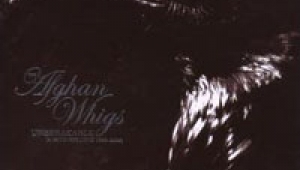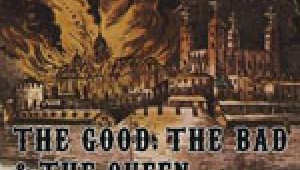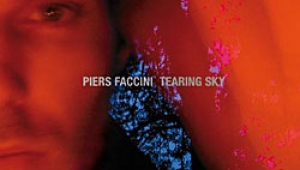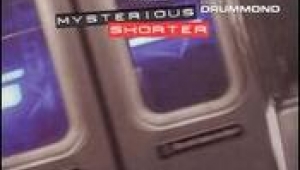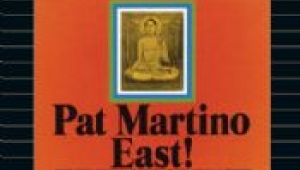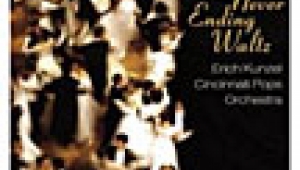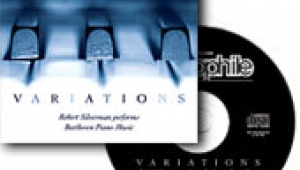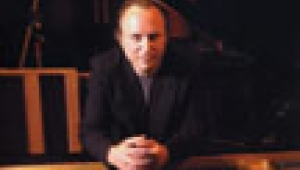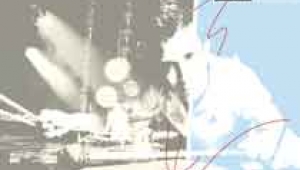| Columns Retired Columns & Blogs |
David Hazeltine-George Mraz Trio: Manhattan: The New York Sessions

David Hazeltine, piano; George Mraz, bass; Billy Drummond, drums.
The day I first met David Chesky, he was pitching Tower Records' national classical buyer on his then-nascent record label. "We're going to make the best sounding recordings that have ever been manufactured," he said. With my almost four years experience as a production manager at a record press and classical label, I chuckled at his naivetè.
With Manhattan: The New York Sessions, Chesky has come mighty close to that ambition—in fact, he might even have made it, depending n how you feel about one particular issue.
I'll state it up front: I have one rule of thumb about George Mraz—I'll listen to anything he's involved with. He's an incredible bassist, with monster chops and a unique touch. He's also been involved in a remarkable number of my candidates for best-sounding jazz recording, dating back to his collaboration with Richie Bierach on the Dean Roumanis–recorded Rendezvous.
Chalk up another winner, because Manhattan is the kind of disc that jazz-loving audiophiles pray for. There are no overdubs, no compressors in the signal path, no multimiking—what you hear is what went down in St. Peter's Church on December 22, 2005. St. Peter's is a great sounding venue—and the band clearly came ready to play.
Hazeltine is a wonderful pianist. His touch is sure and he takes off on solo flights, lovingly supported by Mraz's forceful bass playing and Billy Drummond's remarkably sensitive drumming. The music, mostly taken from the Great American Songbook, swings. I mean it really swings, as the lead passes from one player to the next. Mraz doesn't just solo on the changes, he plays counter melodies, stops time, and locks in to Drummond for a foundation that's deep and constantly right. As for Drummond, he's simply amazing, offering a primer on brushwork, tonal color, and drive.
The sound is superb. The 9' Steinway has that huge liquid-silver sound that Steinway wishes all of its pianos had. Perhaps they once did, but this one, supplied by A.C. Pianocraft, is one in a million—and Nicholas Prout captures that big-hearted molten-silver sound perfectly. We hear this instrument's power, sustain, and even, on a few occasions, its guts. Manhattan has some of the best recorded piano sound I've ever heard.
Ditto, Mraz's bass sound. It's big—not bigger than life, but bigger than we are used to on recordings. And it blooms into St. Peter's with such lush life that it almost verges on too much of a good thing—almost, but never quite too much.
Balancing this is Drummond, who plays with restraint and remarkable control. This should come as no surprise to anyone who has followed his career—Drummond has huge ears and is one of those rare drummers who has it all, but keeps it constantly in thrall to the music.
As Manhattan played on, however, I began to wish Drummond had let it all out a tad more. On most of the disc, he confines himself to the brushes—and make no mistake, it's a masterful display of tonal color and support, but I began to wish for a tad more bite. That's delivered on "Don't Walk Away" and "Everything I Love," the songs where Drummond breaks out the sticks and proves his stickwork is subtler than most drummers' brushing. I'm sure that, recording live and trying to balance three players in an acoustically live hall, Drummond was asked to keep it soft—I only wish the producers had trusted this most mutable of drummers to do it with all of his palette.
So there you have it: Once again the reviewer is trying to second-guess the creative team. That always sets off my BS detector and It ought to set off yours, too. I may well be full of it. You owe it to yourself to hear Manhattan: The New York Sessions because it does boast great music played by masterful musicians with knock-your-socks-off sonics.
The experience will be worth it; telling me I'm full of it will just be gravy.
- Log in or register to post comments
